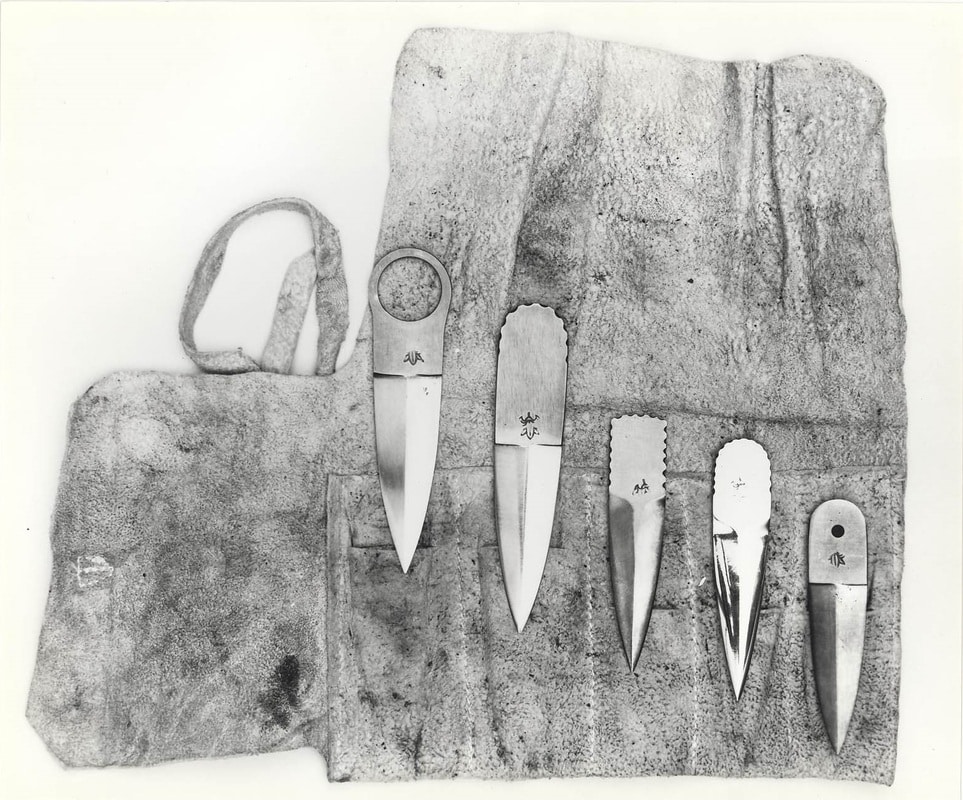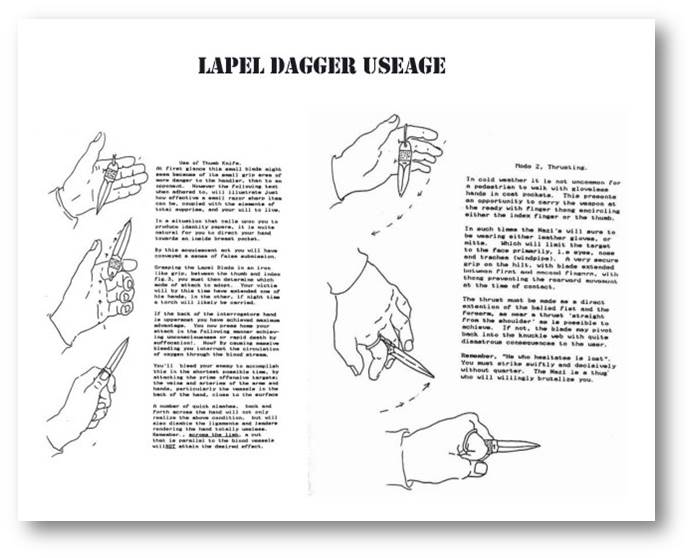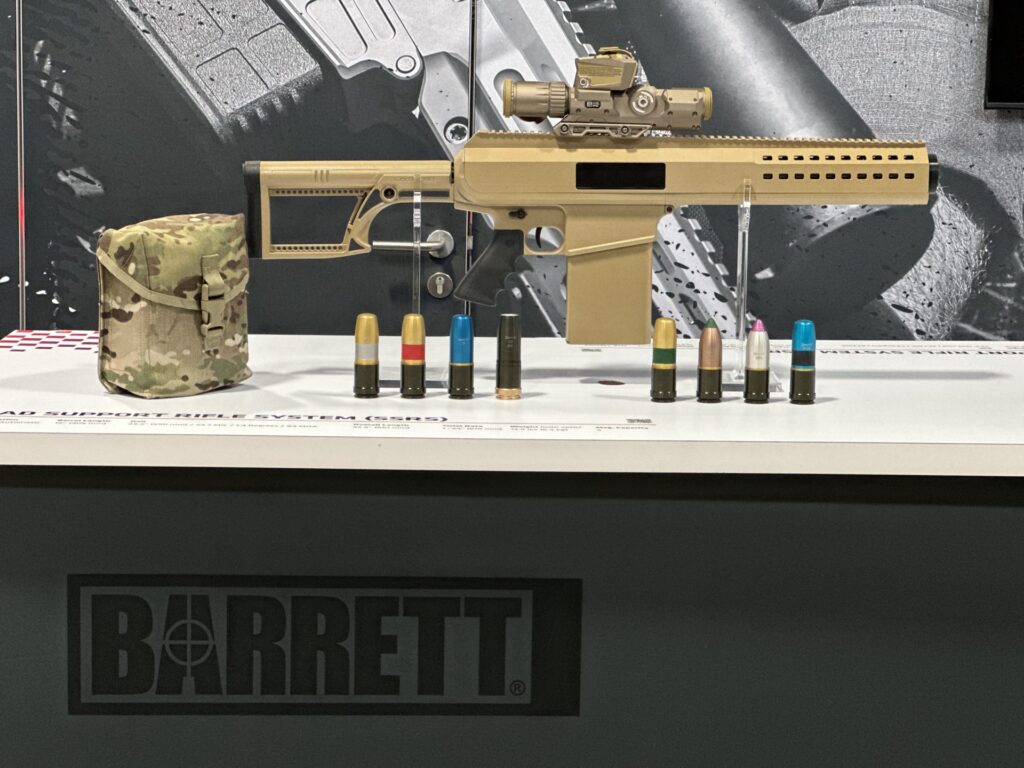The WWII lapel dagger was a tiny concealed killer for secret agents
- By Travis Pike
Share This Article

You can track the advancement of warfare by how little a country relies on sharpened tools to fight. That doesn’t mean a good knife isn’t needed. For the men of the Office of Strategic Service (OSS) and the British Special Operations Executive (SOE) in World War II, a little knife went a long way. These agents had a number of covert weapons at their disposal; one of their smallest was the lapel dagger, also sometimes known as the thumb dagger.
This micro-sized fixed-blade fighting knife might not have been a KA-BAR, but the SOE and OSS weren’t storming beaches, so the little knife’ design was guided by the covert operations they were conducting. With that in mind, let’s take a closer look at the lapel dagger.
Size and design of the lapel dagger
How small can you make a fighting knife? Well, that probably depends on if you know how to fight. There wasn’t a standard set of specs for a lapel dagger, and they varied in size but were all extremely small, thin, and lightweight for the most part.

The weapon had a dual-edged blade which is fairly important for such a small knife in order to increase its cutting edge and allow the wielder to attack in multiple directions. Little knives aren’t known for their fighting capability, so every little advantage helps.
Its “handle” was incredibly small often being just a small rounded portion roughly the same width as a thumb. A lapel dagger would use a modified fencing grip with the blade pinched between the thumb and the pointer finger.

A small hole would be located in the rear of this handle to allow the attachment of a retention cord. This cord could wrap around the wielder’s hand to prevent them from losing the little blade in a scuffle.
Related: Letters to Loretta: Life as a World War II prisoner of war
Keeping it concealed
The small size and lightweight design of the lapel dagger lent to easy concealment. Keeping something concealed isn’t hard. The fashion of the day even made it easy to hide large handguns. However, what was tricky was hiding something in the face of a person trained to search another person.
This meant SOE and OSS agents had to be creative. These men and women infiltrated environments that were less about slitting throats and planting bombs and more about stealing documents and overhearing conversations, so they would likely be frisked and searched intensely. It’s not like the Nazis were big fans of personal rights, after all.

Yet, a lapel was unlikely to be searched because it’s not a common area to hide weaponry or really anything. This meant an operative could be armed with a lapel dagger and remain undetected. These daggers could be sewn anywhere, including into sleeves, shoes, and more, depending on the capabilities of the operative.
Related: 5 real guns that James Bond would use
The purpose of the lapel dagger
These daggers were not meant for sentry execution, assassinations, or anything fancy. They were a last-ditch tool when an operative would find themselves backed into a corner. The dagger allowed the operative to attack with a bit of surprise and create distance between themselves and the threat. They could then escape or seize another weapon-of-opportunity and fight on.

Even if locked up, an operative would likely retain the blade. Plus, the lapel dagger could also be used as a tool for escaping and evading threats as it could cut through different types of bindings and allow for an escape.
It is somewhat unclear how many times a lapel dagger saved the day. In fact, the SOE and OSS were always tight-lipped about these things, and even to this day, a lot of their tools are shrouded in mystery. Still, the lapel dagger is an interesting tool for a fascinating group of spies.
Read more from Sandboxx News
Related Posts
Sandboxx News Merch
-

‘AirPower’ Classic Hoodie
$46.00 – $48.00 Select options This product has multiple variants. The options may be chosen on the product page -

‘Sandboxx News’ Trucker Cap
$27.00 Select options This product has multiple variants. The options may be chosen on the product page -

‘Kinetic Diplomacy’ Bumper Sticker (Black)
$8.00 Add to cart

Travis Pike
Travis Pike is a former Marine Machine gunner who served with 2nd Bn 2nd Marines for 5 years. He deployed in 2009 to Afghanistan and again in 2011 with the 22nd MEU(SOC) during a record-setting 11 months at sea. He’s trained with the Romanian Army, the Spanish Marines, the Emirate Marines, and the Afghan National Army. He serves as an NRA certified pistol instructor and teaches concealed carry classes.
Related to: Gear & Tech, Military History

The Switchblade, loitering munitions, and the new terrifying face of warfare

5 ways to prepare and survive the Marine Corps boot camp

Barrett’s Squad Support Rifle System will make infantry squad deadlier

The unique world and uses of howitzers
Sandboxx News
-

‘Sandboxx News’ Trucker Cap
$27.00 Select options This product has multiple variants. The options may be chosen on the product page -

‘AirPower’ Classic Hoodie
$46.00 – $48.00 Select options This product has multiple variants. The options may be chosen on the product page -

‘AirPower’ Golf Rope Hat
$31.00 Select options This product has multiple variants. The options may be chosen on the product page -

‘Sandboxx News’ Dad Hat
$27.00 Select options This product has multiple variants. The options may be chosen on the product page
